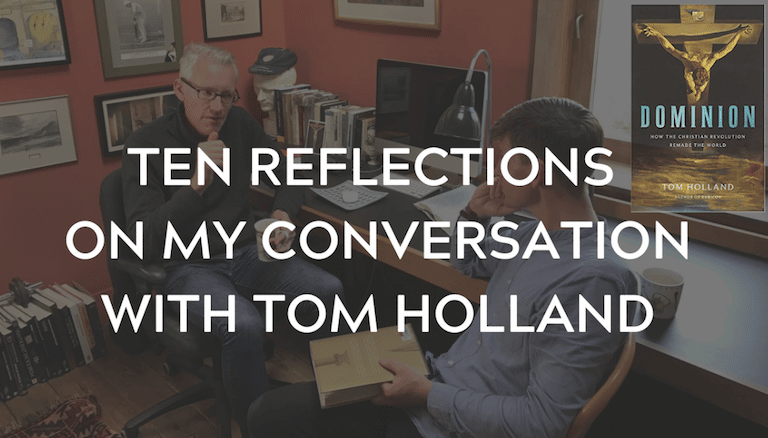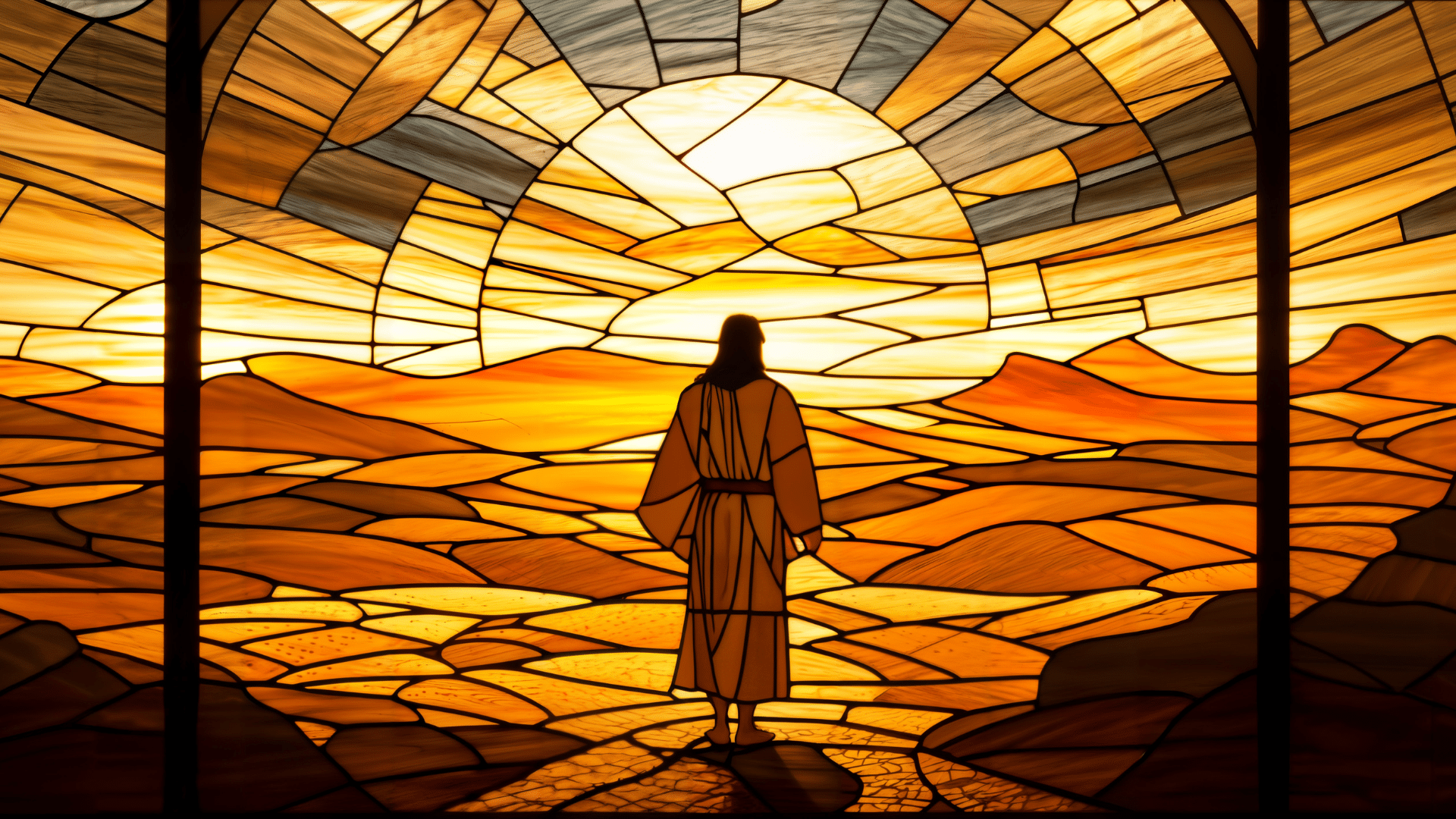Considering Tom Holland’s Dominion — part 3

20th October 2019 // By Glen Scrivener
PART THREE
Last week I interviewed Tom Holland about his new book, Dominion, The Making Of The Western Mind. If you haven’t seen the interview, do watch below.
Below are 6 reflections on the book and on our interaction. (Here are parts one and two).
Here are reflections 1-6, and here are reflections 7 and 8. In outline they are
- Tom Holland gets the ethic of the cross.
- Tom Holland gets the theology of the cross.
- Dominion is a continuation of In The Shadow of the Sword
- Dominion is the perfect contrast to In The Shadow of the Sword.
- There is a huge gap in the book. And that’s deliberate.
- The avoidance of the Gospels is still a bit of a dodge.
- Having said this, Holland can help us immensely with the question of historicity.
- Holland is very aware that history is crucial to the faith.
- It’s either Christ or the abyss
Quite early in the interview Holland mentions Nietzsche as the supreme example of someone who has clearly seen the way of the cross and rejected it. Nietzsche therefore shows us how remarkable (and admirable) the ethics of the cross really are because the alternative seems to be nihilism. I put to Holland that he’s presented a stark binary for us: “It’s either the abyss [i.e. the abyss of nihilism] or it’s ‘Christ and him crucified.’” I ask whether there is a third way? Holland responds:
“That is the course that, by and large, the west has taken. It has [said] ‘We’ll take over Christian morals and ethics thank you very much, but we’re not actually going to bother with any of the mumbo jumbo that requires us to go to church.’ The question that is posed by that of course is whether or not you can continue to have the bloom if the roots have been pulled up. And we don’t know the answer to that as a society.”
Fascinatingly, Holland thinks Nietzsche was right that the bloom is from Christian roots. The morals and ethics we take for granted in the west are inextricably Christian. Their historical (and we might say theological) contingency is irreducible. If this is the case then it does seem to me that the “third way” experiment of the secular west is doomed to failure. It really is Christ or the abyss. Holland doesn’t say it in these terms. I’m sure he has more hope for the secular west, but I wonder how warranted that is. For me the binary that Holland suggests sounds remarkably like “the cross or the pit!”, “Jesus or the abyss!” Which, of course, is what Christians have been banging on about for quite some time.
Once again, Holland is not presenting the stark binary that I am. But it seems to me that following his train of thought has some some very Christian-sounding implications.
- Tom Holland’s objection to personal faith is, itself, very Christian.
Our time had already gone when I asked my final question about personal faith. I didn’t feel I had time to come back on his reason for not believing. He cited, as he often does, the dinosaurs.
Hindsight’s a wonderful thing, but it’s occurred to me since the interview that a good riposte would be the one which Tom uses for those who disbelieve his thesis. Essentially it’s to say: “That’s a crucial objection, well made. And it also betrays how Christian your assumptions are!” I really like that tactic. I think Tom’s excellent at it, so let me use it on the master himself. Here’s my imagined comeback:
“Dinosaurs, yes! I too have such questions. Species come and go. Extinction level events occur. And all of it seems an unacceptable violation of humanity’s supposedly unique dignity. But I sense that the outcry here is coming from a very Christian place. The Christian story — unique in so many ways — gives exceptional dignity to humans. And, yes, it seems contradicted by every other story, whether religious or scientific. If the Christian story of God’s solidarity with man is true then it will seem false when judged from the perspective of every other story. That’s the nature of the case.
But I wonder whether you’re drawn to this story because of how Christian your instincts are. You want to have a problem with suffering and catastrophe, with a mere survival of the fittest, and with the extinction, not only of glorious creatures, but of human exceptionalism too. You’re right to find a problem here. Christianity is the invitation to step inside the story and have the problem. Really have it. Because outside this story you can’t really object to ‘nature red in tooth and claw’, can you?
Of course you’ll counter — and rightly so — ‘These problems cast doubt on the story itself. How can the story be true when contradicted by untold suffering, death and degradation?’ But I think you know the answer to that question. You’ve written a whole book about it. The Christian story of God’s solidarity with man includes the most bewildering chaos and darkness. The God of the cross doesn’t merely coexist with baffling evil, hopes dashed, and excruciating pain, he includes these elements in his greater glory. We might ask, “If dinosaurs can go to the wall, why not humans?” But at the cross the stakes are raised even higher! We don’t just see man go to the wall, but God! And out of that folly, weakness and godforsakenness comes meaning and hope beyond all expectation. There’s nowhere else to truly have your question than inside the story. And there’s no-one else to trust your question to but to this God — the God of the cross.
And the thing is, Tom, the person who’s made me feel the wonder of this God most in the last fortnight has been you. So my prayer is not that you’ll ditch your question, but that you’ll come home to the place where such questions — and such questioners! — truly belong.”
